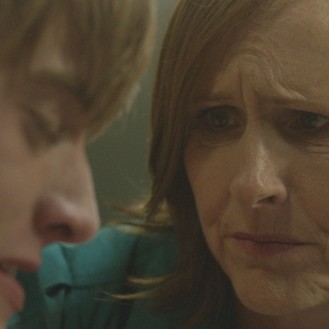By: Addison Wylie
That title is a turn off, but (Dis)Honesty – The Truth About Lies is an enthralling investigative film that will hopefully serve as a role model for documentarians.
Duke University professor Dan Ariely speaks to a crowd of eager ears at the Institute for Advanced Study at Princeton, New Jersey. He stands at the foot of the stage and explains numerous experiments his team has conducted to test society’s moral fibre and figure out the psychology behind irrational decisions. He’s a funny man who is always thoughtful and perceptive with how he presents himself and his theories.
The structure of Yael Melamede’s documentary can be compared to Davis Guggenheim’s An Inconvenient Truth, a film that featured politician/philanthropist Al Gore leading an auditorium of listeners through a distressing Power Point presentation. What separates (Dis)Honesty from Guggenheim’s overpraised work is that Melamede has made her film involving and has used examples to prove Ariely’s points and educated opinions. It’s not only a smart film, but a fun one to watch.
Ariely explains about the “Fudge Factor”, the wiggle room that exists when bending the truth. Melamede accompanies Ariely’s speech by intercutting an experiment, revealing how the test works, and following up with a real-life story that gives an example. For instance, the “everyone is doing it” excuse is accompanied by an interview with former cyclist Joe Papp and his regrets with doping.
(Dis)Honesty – The Truth About Lies collects a series of interesting and compelling discussions, including former NBA referee Tim Donaghy and Tucker Max media strategist Ryan Holiday. Other sit-downs cover infidelity (a first-hand account of using Ashley Madison to find satisfaction in a stressful marriage) and how distance between money can help cheaters feel good about their decisions to dissect (a closer look at an infamous insider trading con).
Yael Melamede films these interviews as honesty as possible. By locking off her camera dead-centre in front of his subjects, the audience sees the anguish these people feel after lying and having the consequences catch up. That said, she doesn’t use her doc to issue guilt trips to the interviewees or the audience – an exceptional attribute about Yael Melamede’s filmmaking and towards this excellent film.




Be the first to comment